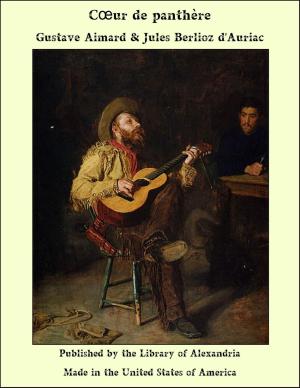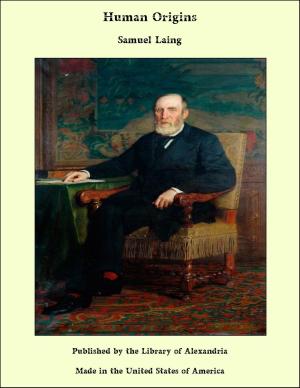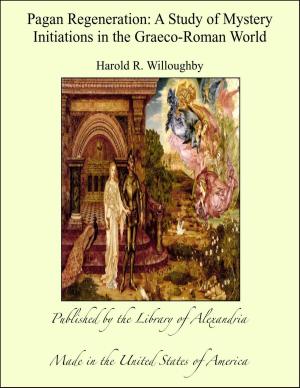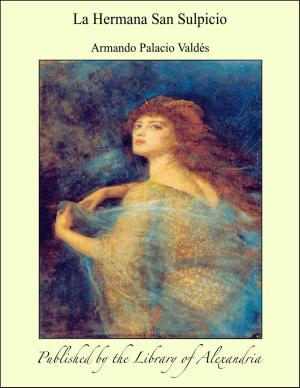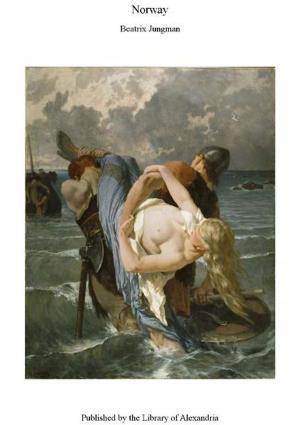The Awakening of Spring: A Tragedy of Childhood
Nonfiction, Religion & Spirituality, New Age, History, Fiction & Literature| Author: | Frank Wedekind | ISBN: | 9781465539250 |
| Publisher: | Library of Alexandria | Publication: | March 8, 2015 |
| Imprint: | Language: | English |
| Author: | Frank Wedekind |
| ISBN: | 9781465539250 |
| Publisher: | Library of Alexandria |
| Publication: | March 8, 2015 |
| Imprint: | |
| Language: | English |
A PROEM FOR PRUDES The playwright has attacked his theme with European frankness; but of plot, in the usual acceptance of the term, there is little. Instead of the coherent drama of conventional type, Wedekind has given us a series of loosely connected scenes illuminative of character—scenes which surely have profound significance for all occupied in the training of the young. He sets before us a group of school children, lads and lassies just past the age of puberty, and shows logically that death and degradation may be their lot as the outcome of parental reticence. They are not vicious children, but little ones such as we meet every day, imaginative beings living in a world of youthful ideals and speculating about the mysteries which surround them. Wendla, sent to her grave by the abortive administered with the connivance of her affectionate but mistaken mOther, is a most lovable creature, while Melchior, the father of her unborn child, is a high type of boy whose downfall is due to a philosophic temperament, which leads him to inquire into the nature of life and to impart his knowledge to Others; a temperament which, under proper guidance, would make him a useful, intelligent man. It is Melchior's very excellence of character which proves his undoing. That he should be imprisoned as a moral degenerate only serves to illustrate the stupidity of his parents and teachers. As for the suicide of Moritz, the imaginative youth who kills himself because he has failed in his examinations, that is another crime for which the dramatist makes false educational methods responsible. A grim vein of humor is exhibited now and then, as when we are introduced to the conference room in which the members of a gymnasium faculty, met to consider the regulation of their pupils' morals, sit beneath the portraits of Pestalozzi and J. J. Rousseau disputing with considerable acrimony about the opening and shutting of a window. The exchange of unpleasant personalities is interrupted only by the entrance of the accused student, to whose defense the faculty refuses to listen, having marked the boy for expulsion prior to the formal farce of his trial. Wedekind has been accused of depicting his adults as too ignorant and too indifferent to the needs of the younger generation. But most of us will have to admit that the majority of his scenes and characters seem very true to life. “Frühlings Erwachen” may not be pleasant reading exactly, but there is no forgetting it after one has perused it; there is an elemental strength about it which grips the intellect. As a play it stands unique in the annals of dramatic art. That it has succeeded in attracting much attention abroad is shown by the fact that this drama in book form has gone through twenty-six editions in its original version and has been translated into several European tongues, Russian included, while stage performances of the work have been given in France as well as in Germany
A PROEM FOR PRUDES The playwright has attacked his theme with European frankness; but of plot, in the usual acceptance of the term, there is little. Instead of the coherent drama of conventional type, Wedekind has given us a series of loosely connected scenes illuminative of character—scenes which surely have profound significance for all occupied in the training of the young. He sets before us a group of school children, lads and lassies just past the age of puberty, and shows logically that death and degradation may be their lot as the outcome of parental reticence. They are not vicious children, but little ones such as we meet every day, imaginative beings living in a world of youthful ideals and speculating about the mysteries which surround them. Wendla, sent to her grave by the abortive administered with the connivance of her affectionate but mistaken mOther, is a most lovable creature, while Melchior, the father of her unborn child, is a high type of boy whose downfall is due to a philosophic temperament, which leads him to inquire into the nature of life and to impart his knowledge to Others; a temperament which, under proper guidance, would make him a useful, intelligent man. It is Melchior's very excellence of character which proves his undoing. That he should be imprisoned as a moral degenerate only serves to illustrate the stupidity of his parents and teachers. As for the suicide of Moritz, the imaginative youth who kills himself because he has failed in his examinations, that is another crime for which the dramatist makes false educational methods responsible. A grim vein of humor is exhibited now and then, as when we are introduced to the conference room in which the members of a gymnasium faculty, met to consider the regulation of their pupils' morals, sit beneath the portraits of Pestalozzi and J. J. Rousseau disputing with considerable acrimony about the opening and shutting of a window. The exchange of unpleasant personalities is interrupted only by the entrance of the accused student, to whose defense the faculty refuses to listen, having marked the boy for expulsion prior to the formal farce of his trial. Wedekind has been accused of depicting his adults as too ignorant and too indifferent to the needs of the younger generation. But most of us will have to admit that the majority of his scenes and characters seem very true to life. “Frühlings Erwachen” may not be pleasant reading exactly, but there is no forgetting it after one has perused it; there is an elemental strength about it which grips the intellect. As a play it stands unique in the annals of dramatic art. That it has succeeded in attracting much attention abroad is shown by the fact that this drama in book form has gone through twenty-six editions in its original version and has been translated into several European tongues, Russian included, while stage performances of the work have been given in France as well as in Germany

